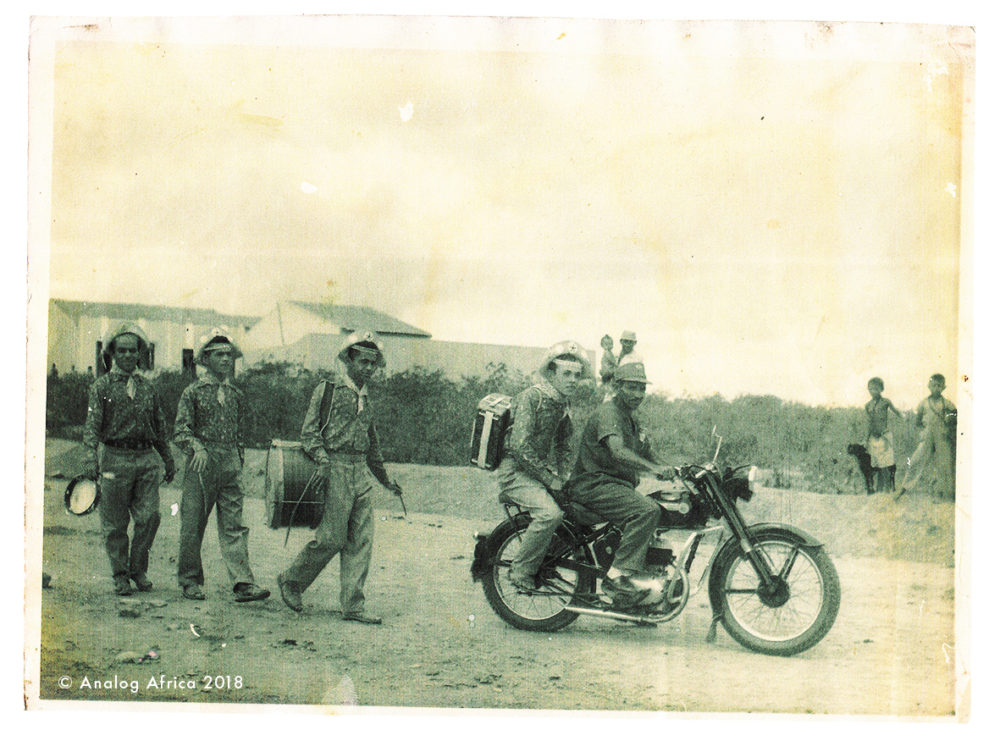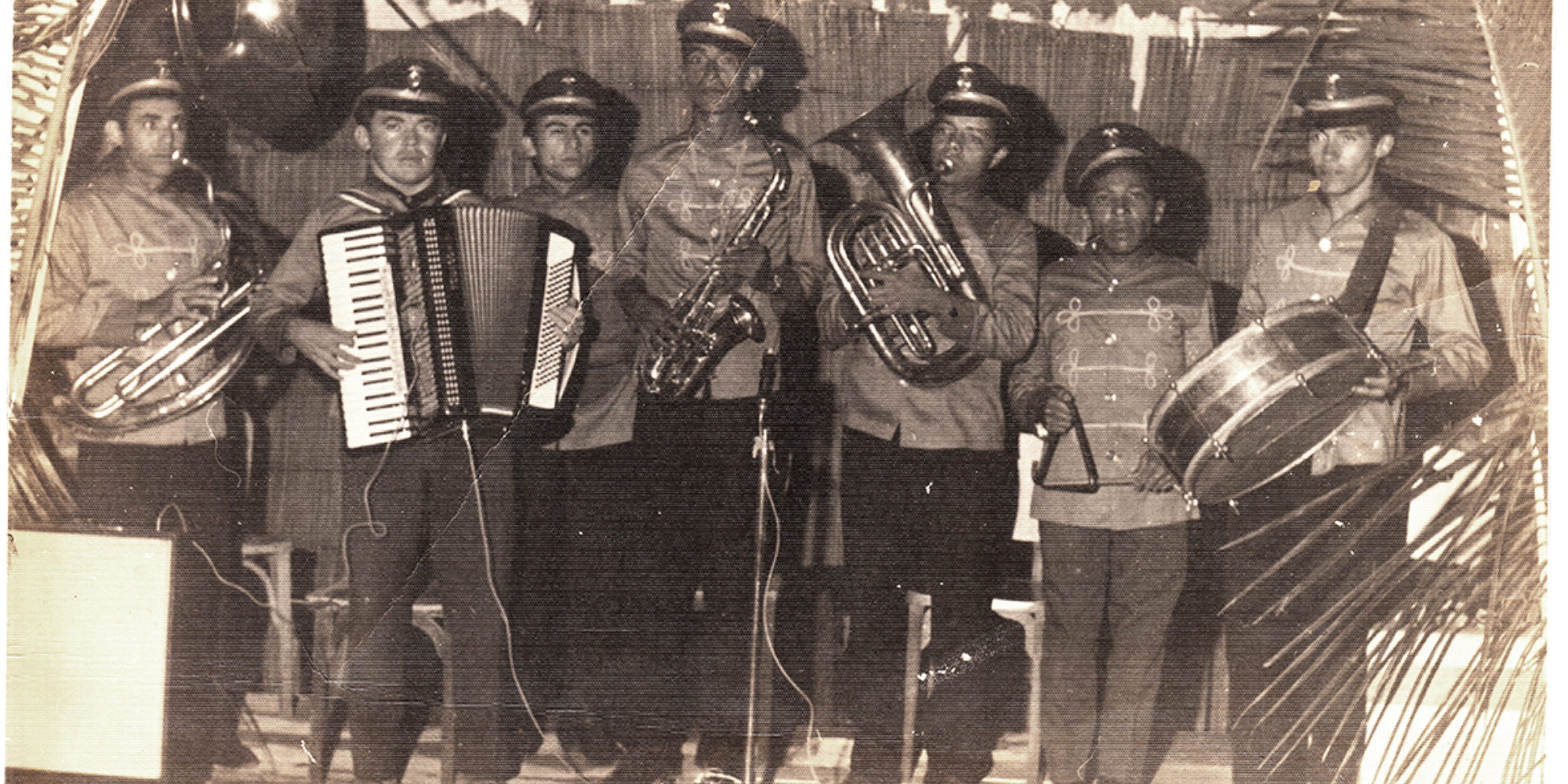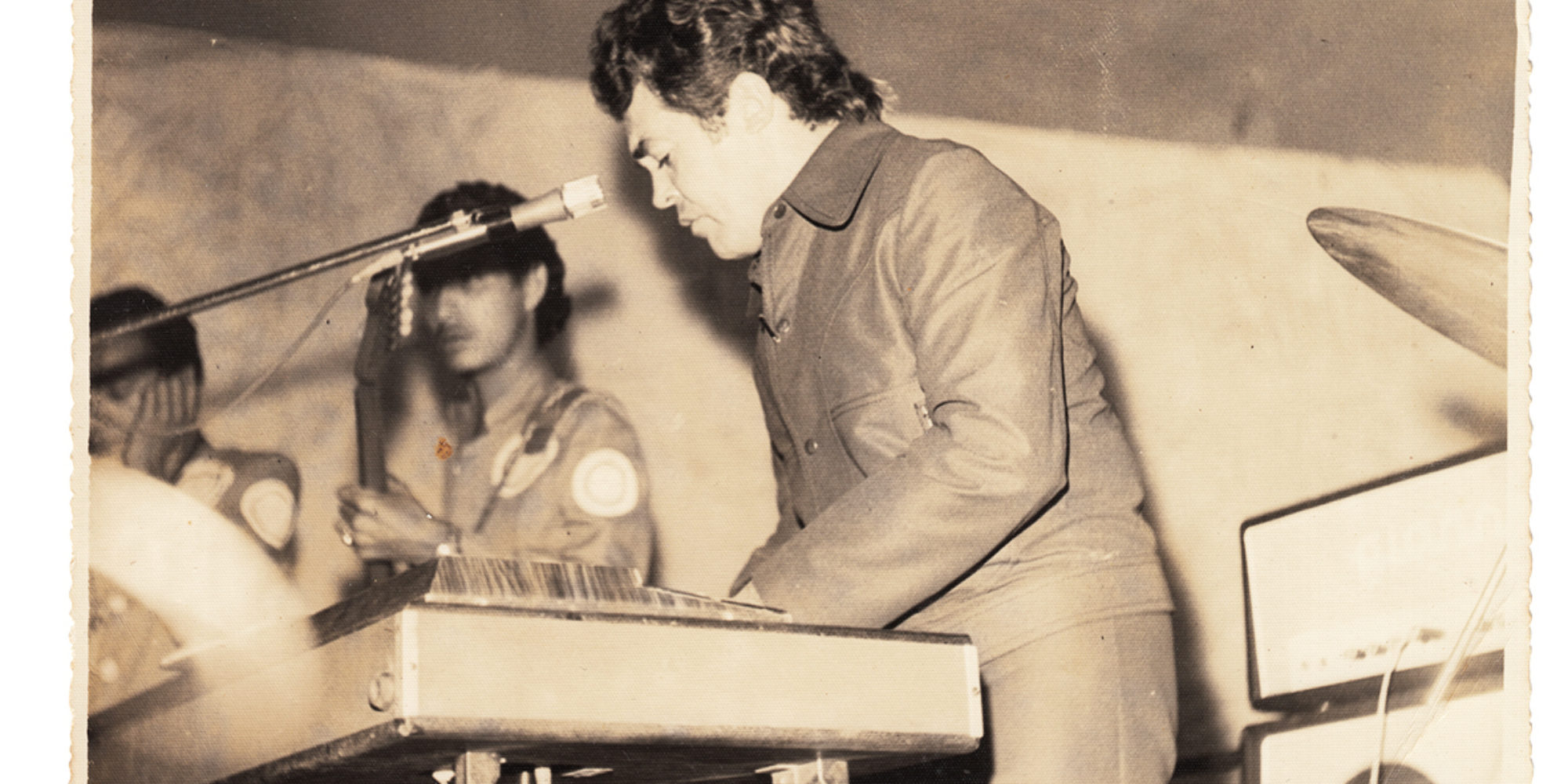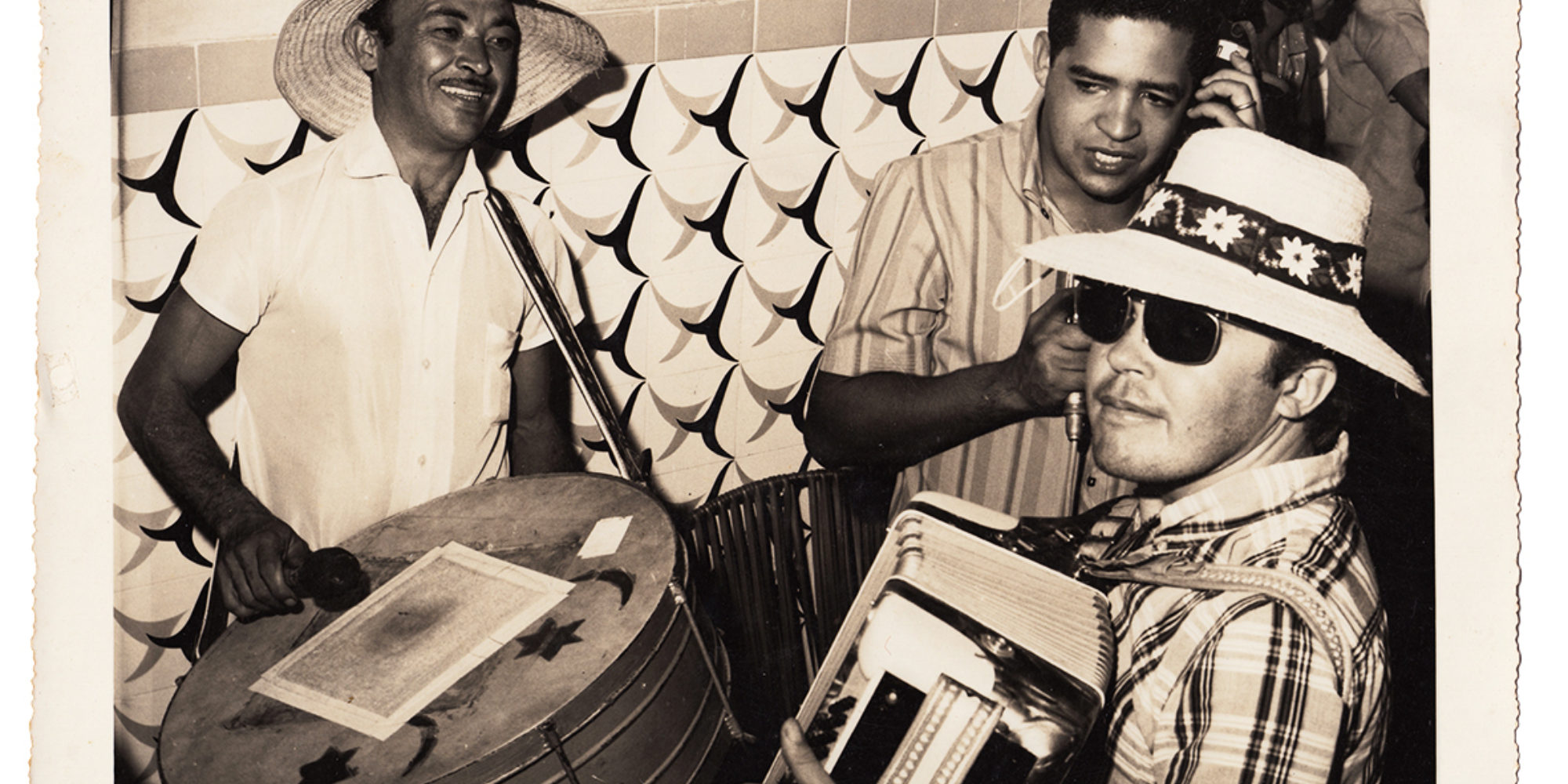Forró music may be defined for many by the centrality of the accordion, but as Analog Africa’s new compilation, Camarão: The Imaginary Soundtrack to A Brazilian Western Movie 1964–1974, demonstrates, a forró trio is two-thirds percussion. The triangle and zabumda form the backbone that Reginaldo Alves Ferreira’s accordion swoops and bounds on. It is forró at its widest definition, a blanket term for a number of northeastern dance genres that use the accordion. It’s Camarão’s compositions playfully orchestrated and filled out with big booming horns and subtle electric guitar licks that would sound at home next to pieces by Ennio Morricone or Ry Cooder, but always driven by the beat.
Reginaldo Alves Ferreira was born in 1940 in Fazenda Velha, Brejo da Madre de Deus, in the northeastern Brazilian state of Pernambuco, on the eve of the feast of St. John. Basically he was born in the heart of forró country, at peak forró season. His father was an accordionist, and Ferreira began playing the instrument by imitating first his father and then the records of Luiz Gonzaga.
Gonzaga, probably more than anyone, is responsible for forró’s transformation from a regional phenomenon to a national one in the late 1940s. His song “Asa Branca,” about the drought-stricken sertão, the northeastern back country, is in the Brazilian canon, covered by everyone from Baden Powell to Gilberto Gil to the contemporary New York outfit Forró in the Dark, with guest vocals from David Byrne. Ferreira met his hero and ended up working with him throughout his career, and several of the tracks on The Imaginary Soundtrack to a Brazilian Western are Gonzaga compositions.
The album opens with a clamor of voices before the band bursts into the only non-instrumental on the album, Gonzaga’s “Retrato De Um Forró.” From the jump, the music’s social context pops out: This is party music that belongs in sweaty rooms where people are downing glasses of cachaça, a Brazilian sugarcane spirit. While the accordion is often a punchline in American culture, in this music, riding that irrepressible back beat, it’s actually cool.
And far from just being a good interpreter of forró, Camarão proves his skill as an interpreter of Brazilian music broadly, and also demonstrates the flexibility of forró to meld with other genres. The third track, “Rio Antigo,” is a choro by Altamiro Carrilho. Choro music is another instrumental genre of Brazilian music, although where forró is rural and northeastern, choro is urban, from Rio. Rather than being played in a more traditional choro lineup, with flute, guitars or cavaquinho, Camarão rides in on a tuba bassline, with the horns blaring over the accordion and triangle holding down the rhythm section in lieu of strings. Urban and rural and marching band all sit side by side.
While other Analog Africa releases are compilations, this one is a sort of anthology of a single artist. The tracks are uniformly short--only once foraying over three minutes and even then just barely--and with the aforementioned exception, instrumental. The styles are definitely varied, from the thundering, tango-like mode of “A Cigana Lhe Enganou” to the slickly electric guitar-filled “Nao Interessa Nao.” It's playful music, perhaps nowhere better exemplified than in their rendition of a song that has also been versioned by the Muppets.
To those who may be wondering, “Camarão” translates to “Shrimp,” and was a nickname a bandmate bestowed on the accordion maestro when, in the early ‘60s, he showed up late to a gig, and played red-face, out of breath and out of time. As for the title of the compilation, it was just animpression the crate diggers putting it together couldn't shake.
Analog Africa releases are known for their extensive liner notes and photographs and it looks like this one will be no exception. The label seems to have interviewed Camarão quite a bit, getting his accounts of playing in Pernambuco’s seedier, late ‘60s era, before his death in 2015.
His band gave him his nickname and even more importantly the beat. Camarão gave the music spirit.











